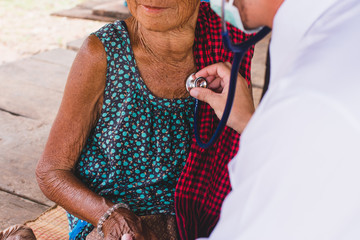Diabetes is one of the most common non-communicable diseases (NCDs) with approximately half a billion people affected globally, of which 80% live in lower- and middle-income countries (LMICs).
Individuals with diabetes are particularly vulnerable in humanitarian crises due to disrupted health services, medication supplies, and unpredictable food supplies, which exacerbates the disease and can lead to complications or death. Type 1 diabetes is arguably the most life-threatening NCD in the context of service disruption, since lack of to access insulin and continuity of care in place them at immediate risk of death. Type 2 diabetes is responsible for a vast burden of suffering and disability in low resource settings and contributes substantially to cardiovascular disease related mortality. Moreover, diabetes is associated with greater susceptibility to infections and worse outcomes, including tuberculosis and other respiratory infections, which is of great concern, considering humanitarian crises and infectious disease outbreaks often go hand in hand.
The geography and nature of humanitarian crises today put people with diabetes at greater risk than ever. Forced migration has reached record high levels in recent years, with 85% of those affected being hosted in LMICs and 65% living in protracted refugee situations, which markedly reduces access to follow up care resulting in very poor health outcomes.2 On top of this, the current COVID19 pandemic highlights many of the challenges for diabetes care on a global scale: reports show more severe disease and increased mortality in people with diabetes due to COVID19, and the delivery of healthcare is challenged due to limited work force, disrupted supply chains, and difficult access to basic and essential medical supplies, such as insulin.
Despite projections of a 48% rise in diabetes prevalence globally over the next 25 years and expected increase in humanitarian crises due to climate change, conflict and epidemics, the provision of diabetes care in humanitarian settings remains scarce and poorly coordinated. This was highlighted at a symposium at Harvard in April 2019, which led to the Boston Declaration which was signed by 64 signatories from over 40 international organizations.5 The Global Alliance for Diabetes in Crises (GADiC) was consequently established to coordinate and tackle these goals collaboratively.


